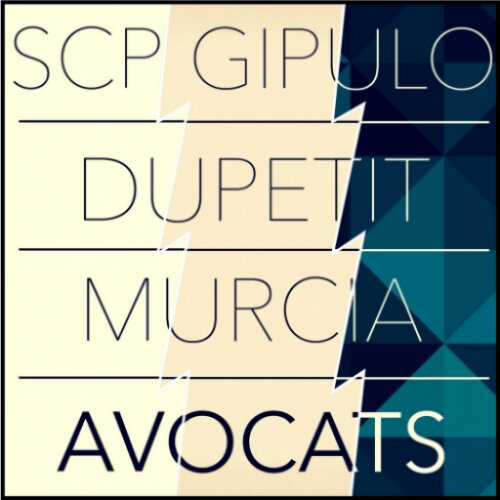Best Faith-Based Law Lawyers in Perpignan
Share your needs with us, get contacted by law firms.
Free. Takes 2 min.
List of the best lawyers in Perpignan, France
About Faith-Based Law in Perpignan, France
Faith-Based Law in Perpignan, France, is primarily concerned with the legal dimensions of religious practices and how they intersect with national laws. While France is a secular state with a strict separation of church and state, individuals and communities of faith still encounter situations where their religious practices interact with legal systems. In Perpignan, a culturally rich and diverse city, understanding the nuances of Faith-Based Law is essential for navigating these interactions, particularly for religious communities practicing various faith traditions.
Why You May Need a Lawyer
Individuals and organizations may need a lawyer specialized in Faith-Based Law in various situations, such as:
- Religious Freedom Issues: When there are conflicts between civil obligations and religious beliefs.
- Property Disputes: Legal disputes regarding locations used for religious purposes, such as places of worship.
- Charity Law: For religious organizations involved in charitable work requiring compliance with local laws.
- Employment Law: Issues related to religious practices within workplaces, like dress codes and prayer times.
- Education: Faith schools and educational programs need legal guidance to comply with laws while maintaining religious ethos.
- Family Law: Situations involving marriage and divorce where religious customs intersect with civil law.
Local Laws Overview
In Perpignan, as in the rest of France, the principle of laïcité (secularism) is essential, ensuring the separation of religious institutions from the state. Key legal aspects relevant to Faith-Based Law include:
- Secularism in Public Institutions: Public entities must maintain religious neutrality.
- Freedom of Religion: Guaranteed by the French Constitution, allowing the practice of religion within the framework of respect for public order.
- Regulation of Religious Associations: Religious organizations must adhere to the 1901 law on associations and the 1905 law on the separation of churches and state.
- Education Regulations: Religious activities in state-funded schools are restricted.
- Employment and Anti-Discrimination Laws: Employers must accommodate religious practices unless they impose undue hardship.
Frequently Asked Questions
What is Faith-Based Law?
Faith-Based Law refers to legal issues that arise from religious practices and the interaction of these issues with state laws.
Are religious marriages recognized by the state in Perpignan?
Only civil marriages performed by a state official have legal recognition in France. Religious ceremonies can be held but have no legal standing unless a civil marriage is also conducted.
Can religions operate freely in Perpignan?
Yes, the freedom to practice one's religion is protected under French law, though all practices must adhere to public order laws.
How does France’s secular policy affect faith-based schools in Perpignan?
Faith-based schools in France must follow national educational guidelines and secular principles, though they can teach religion as part of their curriculum.
Can religious symbols be worn in public spaces in Perpignan?
While religious symbols can be worn privately and in public places, there are restrictions in public schools and government offices to maintain secular neutrality.
Is it permissible for employees to take religious leave?
Employers in France are encouraged to accommodate religious leave as long as it does not seriously disrupt business operations.
How are religious disputes typically resolved in Perpignan?
Religious disputes are generally resolved through mediation or the judiciary, depending on the nature of the conflict and its interaction with French law.
Are there any tax benefits for religious organizations?
Recognized religious organizations that meet criteria under the 1901 and 1905 laws may receive tax exemptions and benefits.
Can religious communities own property in Perpignan?
Yes, religious communities can own property in Perpignan, but they must comply with relevant property laws and regulations.
How does one start a religious association in Perpignan?
To start a religious association, one must register under the 1901 law, ensuring compliance with regulations governing non-profit associations.
Additional Resources
For further assistance and resources, individuals can contact:
- Direction Départementale de la Cohésion Sociale: Provides information on religious associations and compliance with local laws.
- Pyrénées-Orientales Bar Association: Offers referrals to legal professionals specializing in Faith-Based Law.
- Local Religious Communities and Councils: Many have legal resources or can guide individuals toward appropriate legal aid.
- Ministry of Justice: For broader national guidelines and updates on relevant laws affecting religious practices.
Next Steps
If you require legal assistance in Faith-Based Law, consider the following steps:
- Identify Your Needs: Determine the specific legal issue you are facing to seek the appropriate legal expertise.
- Consult a Lawyer: Reach out to a lawyer with experience in Faith-Based Law for tailored advice and solutions.
- Contact Local Resources: Utilize local organizations and resources for support and guidance on navigating the legal landscape.
- Document All Relevant Information: Keep detailed records of your situation to assist in legal consultations or proceedings.
- Understand Your Rights: Familiarize yourself with your rights under French law to better advocate for yourself in legal matters.
Lawzana helps you find the best lawyers and law firms in Perpignan through a curated and pre-screened list of qualified legal professionals. Our platform offers rankings and detailed profiles of attorneys and law firms, allowing you to compare based on practice areas, including Faith-Based Law, experience, and client feedback.
Each profile includes a description of the firm's areas of practice, client reviews, team members and partners, year of establishment, spoken languages, office locations, contact information, social media presence, and any published articles or resources. Most firms on our platform speak English and are experienced in both local and international legal matters.
Get a quote from top-rated law firms in Perpignan, France — quickly, securely, and without unnecessary hassle.
Disclaimer:
The information provided on this page is for general informational purposes only and does not constitute legal advice. While we strive to ensure the accuracy and relevance of the content, legal information may change over time, and interpretations of the law can vary. You should always consult with a qualified legal professional for advice specific to your situation.
We disclaim all liability for actions taken or not taken based on the content of this page. If you believe any information is incorrect or outdated, please contact us, and we will review and update it where appropriate.









